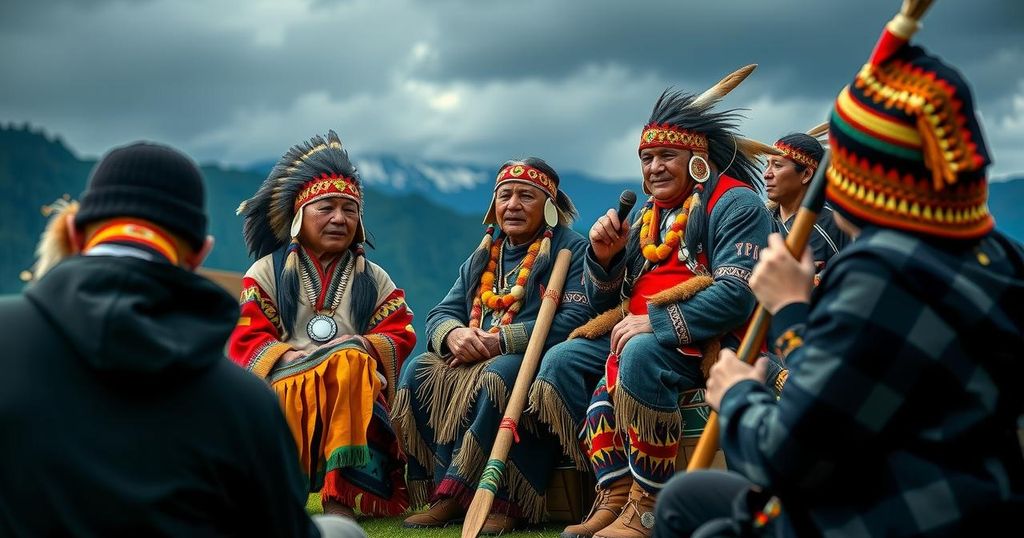Indigenous peoples attending COP29 in Baku are sharing alarming accounts of climate change, including rising seas and water contamination, while also presenting community-based solutions. Their experiences underscore their vulnerability and resilience, with many emphasizing the essential role of traditional practices in combating global warming. The conference serves as a platform for these voices to advocate for greater recognition and integration of Indigenous knowledge in climate action.
At COP29 in Baku, Azerbaijan, Indigenous peoples are vocalizing the profound impacts of climate change on their communities while also proposing actionable solutions. These communities are disproportionately affected by extreme weather events exacerbated by climate change, which threatens their traditional ways of life, such as access to clean water, arable land, and forest resources. Moreover, their historical stewardship of the land positions them uniquely as crucial allies in the fight against global warming. Attendees from various Indigenous groups shared their stark observations and experiences related to climate change. For instance, a representative from the Yakut community in Russia lamented, “When I was a child, we had a lot of snow. We played in it. We made labyrinths with it. Now we don’t have much snow.” Meanwhile, a member of the Mapuche Huilliche community in Chile expressed concern about severe pollution, stating, “As a young Mapuche, I denounce the contamination of my home of Ranco Lake in southern Chile. I live on the third largest lake, on an island in the middle of it, and we do not have drinking water.” Various other representatives shared similar narratives from their regions, underscoring pervasive issues such as prolonged droughts, rising sea levels, and deforestation caused by human activities, yet they simultaneously highlighted the resilience and innovative approaches their communities are adopting to mitigate these effects. The Kichwa Otavalo from Ecuador claimed, “We have solutions for climate change,” emphasizing their intrinsic connection to nature. Additionally, the Huni Kui from Brazil mentioned their commitment to restoration efforts, stating, “The main work we do is to raise awareness among people to stop deforestation.” The diverse experiences reported illuminate the multi-faceted impact of climate change but also the effective strategies Indigenous communities are implementing.
At the heart of COP29 is the urgent need to address the climate crisis, during which Indigenous peoples have gathered to share their unique insights and experiences. Climate change manifests differently across various cultures, and Indigenous communities often bear the brunt of its adverse effects due to their close relationship with the land. Their traditional ecological knowledge is invaluable in developing sustainable practices to combat climate change, demonstrating the dual need for advocacy and actionable solutions. As world leaders convene, the calls for inclusion and respect for Indigenous rights at such forums continue to gain momentum, urging recognition of their crucial role in environmental stewardship.
In summary, the participation of Indigenous peoples at COP29 in Baku highlights the critical intersection of climate change and cultural sustainability. Their testimonies reflect the urgency of the situation while showcasing their integral role in formulating viable solutions. As climate talks progress, it is imperative to amplify Indigenous voices and integrate their traditional knowledge into broader climate strategies, thereby fostering a collaborative approach towards safeguarding our planet.
Original Source: www.sfgate.com







